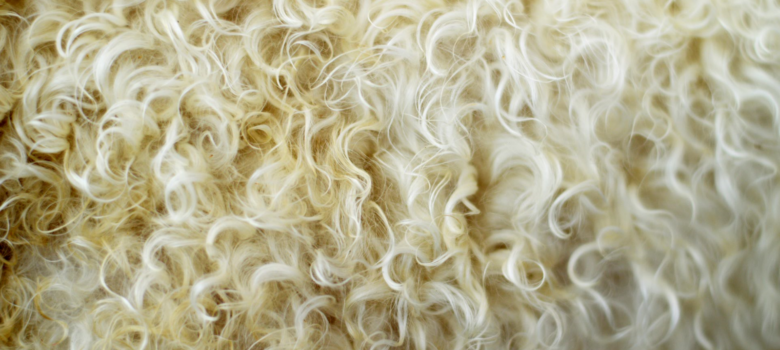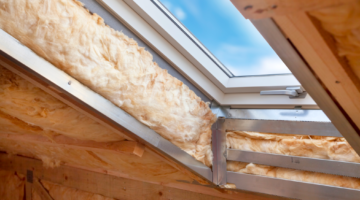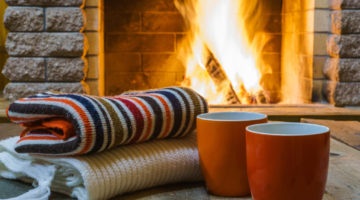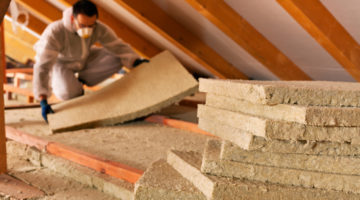
We all know the benefits of insulation, it keeps your home warm in the winter and cool in the summer. Insulation is the oldest, simplest, and most cost efficient way to improve the thermal comfort of your building.
Not all insulation is created equal, however. Some forms of insulation have become outdated and outstripped by higher performance materials on the market. At the same time, many materials have become cheaper and more accessible, leading to a rise in the number of people investing in insulation, both as a retrofitted solution and a new build necessity. That leads us to where we are now; sheep wool insulation.
We get a lot of readers calling us up here to ask if the extra expense of sheep wool insulation is really worth it. Sheep wool is one of our favourite types of insulation so we thought it was about time to tell you why.
Sheep Wool Insulation Uses Gentle, Natural Materials
Fibreglass is created by melting down base minerals and treating them with harsh chemicals to form the characteristic fibres, while all the artificial elements used to make mineral wool can cause a host of health problems when not treated correctly. Mother nature, on the other hand, spent millions of years honing her own insulatory materials– no nasty chemicals needed. Sheep wool is soft, malleable, and safe to install by even the most inept weekend DIYers.
Our favourite kind of insulation is 100% sheep wool – always check this is what you’re buying as many of the products on the market are in fact sheep wool blends.
Sheep Wool Insulation Has A Much Lower Ecological Impact
Simply put, insulation is one of the most ecological changes you can make to your life in the space of one afternoon. After all, 25% of the heat can be lost through an uninsulated loft, driving up not only your bills but also your corresponding energy usage and environmental footprint. Proper insulation can cut this drastically.
The manufacture process is completely different too. Caustic chemicals? Labour intensive processing? High energy manufacture? Not here. It’s also, of course, a completely sustainable resource.
For even better eco-karma, we recommend you look at 100% British sheep wool as buying local cuts down hugely on the carbon footprint of your purchase. Why ship your wool from abroad when we have rolling hills of sheep right here?!
Sheep Wool Insulation Is High Performance
Give us a second while we get a bit sciencey here. The core of sheep wool fibre is hygroscopic, meaning that it absorbs and traps moisture and humidity from the air – perfect for attic and loft spaces where condensation is common. Sheep wool actively regulates moisture this moisture, so it is not affected by damp and can absorb about 30% of its weight in water without losing any thermal insulation performance.
To dispel a common myth, although untreated sheep wool will attract moths and other insects, modern treatment techniques mean that sheep wool insulation you buy today will resist any sort of pest infestation.

Sheep Wool Insulation Is Easily Installed
From Nick Knowles to your DIY rookie dad, insulating with sheep wool is incredibly simple. It’s pliable and handles easy, and without any of the irritants associated to the older style artificial insulation materials, sheep wool is as safe as it comes. No more itchy skin or irritated eyes. Unlike many other heat retention solutions, this means that it can be achieved in just a few hours or single afternoon, without any need for an expensive installer.
If you’re on a budget then we’d generally recommend traditional fibreglass – it’s a great form of insulation and the most cost effective way to keep you warm. If, however, you’re in it for the long haul and want to invest in something sustainable, ecological and natural to keep you and family warm then sheep wool insulation is most certainly for you.
Think we missed something? Do you have a different opinion?
Comment below to get your voice heard…












Sheep wool does not have a low ecological Impact. Sheep denude the hills in the UK of natural vegetation. For instance if sheep and deer were removed from the Scottish hills, the many tree saplings that are continually cropped back by these herbivores would grow into forests. The moorland of the UK could be forest again if sheep were removed. We need forests, forest reduce CO2 and reduce flooding, which is anonther increasing problem because of climate change. Sheep also produce lots of methane around 25 grams per day. Methane is 30x more damaging than CO2. SO WE DO NOT NEED MORE SHEEP!